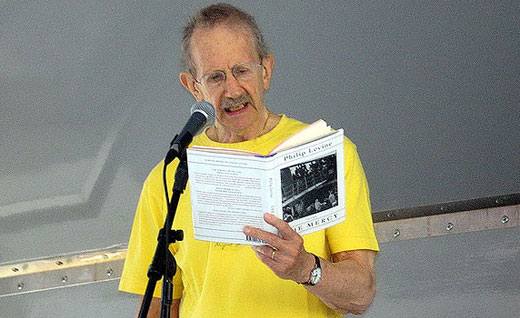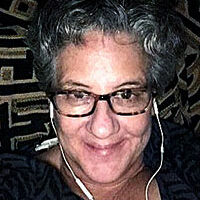
NEW YORK (AP) – Pulitzer Prize winner Philip Levine, known for his detailed and personal verse about the working class, has been appointed the country’s new poet laureate.
The Library of Congress was to announce Wednesday that the 83-year-old Levine will succeed fellow Pulitzer winner W.S. Merwin this fall. The laureate, who receives $35,000 and is known officially as the Poet Laureate Consultant in Poetry, serves from October through May. Richard Wilbur, Joseph Brodsky and Robert Pinsky are among the previous appointees.
“I’m a fairly irreverent person and at first I thought, “This is not you. You’re an old union man,'” Levine said during a recent telephone interview from his home in Fresno, Calif.
“But I knew if I didn’t do this, I would kick myself. I thought, “This is you. You can speak to a larger public than has been waiting for you in recent years.'”
Levine has received virtually every literary honor, but he is the least rarefied of poets. A Detroit native who as a young man worked in automobile plants, he has for decades chronicled, celebrated and worried about blue-collar life. Levine’s awards include the Pulitzer in 1995 for “The Simple Truth” and the National Book Award in 1991 for “What Work Is.”
“Philip Levine is one of America’s great narrative poets,” Librarian of Congress James H. Billington said in a statement. “His plainspoken lyricism has, for half a century, championed the art of telling ‘The Simple Truth’ – about working in a Detroit auto factory, as he has, and about the hard work we do to make sense of our lives.”
In “Drum,” Levine writes of a “Tool & Die” shop and of the men who “sweep, wash up, punch out, collect outside for a final smoke.” In “Coming Close,” he presents a “quiet woman” standing for hours before a polishing wheel. But who is she, really? Levine asks. “You must come closer to find out.”
___
You must hang your tie
and jacket in one of the lockers
in favor of a black smock, you must
be prepared to spend shift after shift
hauling off the metal trays of stock
bowing first, knees bent for a purchase
then lifting with a gasp, the first word
tenderness between the two of you
___
The laureate has few official duties and poets have used the job to pursue a range of personal projects, from Billy Collins’ “Poetry 180,” which encourages the reading of verse in high school, to Robert Hass’ “Watershed” conference on nature writing.
“I don’t want to overextend myself, but at the same time I would like to use the ‘bully pulpit,’ as they call it, to bring attention to some of my concerns,” Levine says.
“There’s a great deal of American poetry that’s hardly known and that should be known. As a poet who didn’t get published for a long time, I know what it’s like to not to be read. The other thing I’d like to do is reach out to readers. I would like to bring attention to the kind of people I’ve written about.”
Photo: Philip Levine reading his poems in New York City, September 2006. David Shankbone Creative Commons 2.5












Comments